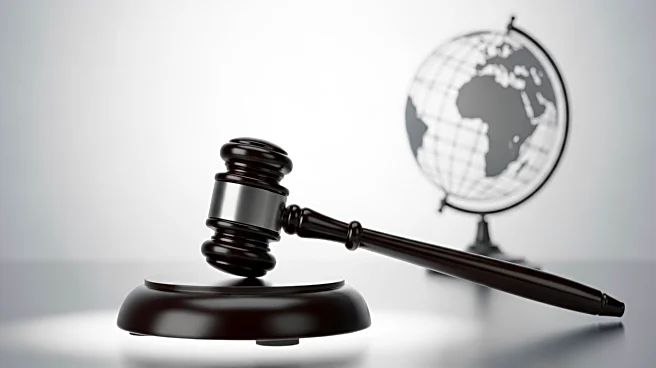What's Happening?
The European Union is considering deploying its Anti-Coercion Instrument (ACI) in response to President Trump's threats to impose tariffs following the EU's recent fine against Google. The European Commission fined Google €2.95 billion for abusing its dominance in the advertising technology sector. President Trump reacted by threatening tariffs to counter what he perceives as unfair penalties. This situation has reignited discussions among EU lawmakers about using the ACI, a regulatory tool designed to restrict economic activities in response to foreign threats. MEPs, including Bernd Lange and Marie-Pierre Vedrenne, have expressed support for initiating the ACI process if President Trump follows through on his threats.
Why It's Important?
The potential use of the ACI by the EU represents a significant escalation in trade tensions between the EU and the United States. If implemented, the ACI could impact foreign direct investment and trade relations, particularly affecting industries reliant on transatlantic cooperation. The move could also set a precedent for how the EU handles coercive actions from foreign governments, potentially influencing global trade policies. For U.S. businesses, especially those in the tech sector, this could mean increased scrutiny and regulatory challenges in the European market.
What's Next?
The EU must decide whether to proceed with the ACI, which involves a multi-step process starting with an investigation by the European Commission. This decision requires approval from the Council and engagement with the U.S. government. The coming weeks are crucial as EU leaders, including President von der Leyen, weigh the implications of deploying the ACI. The outcome could affect ongoing negotiations and trade agreements between the EU and the U.S., with potential repercussions for international trade dynamics.








